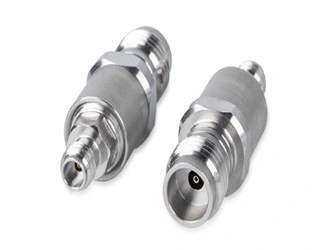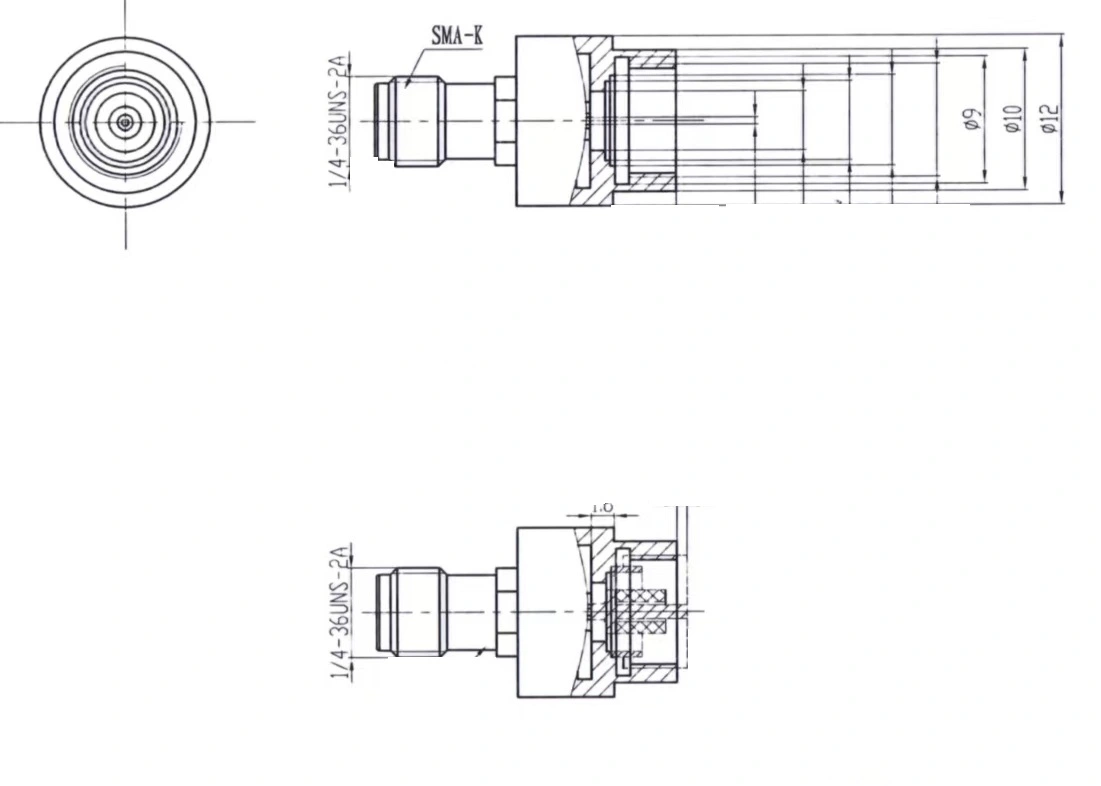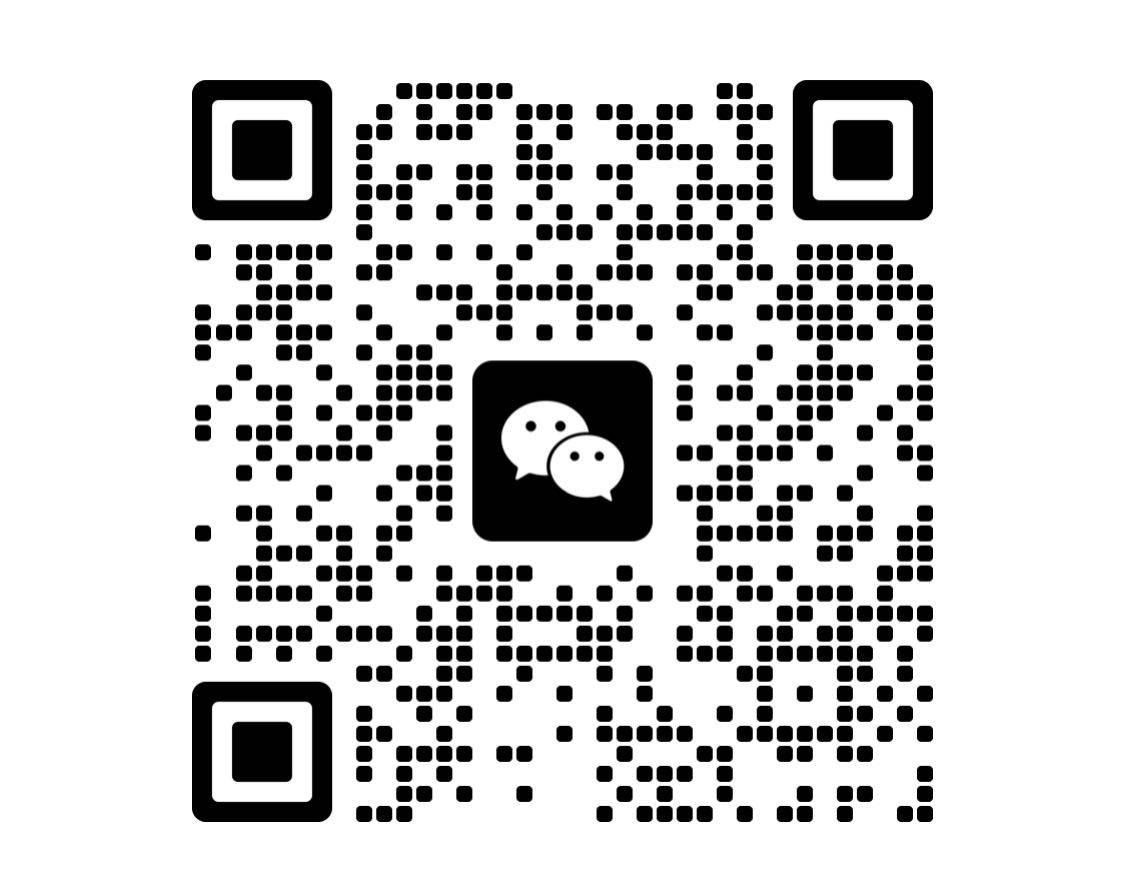Solving IoT & Telecom Compatibility Issues with Multi-Interface Adapters
In today's rapidly evolving digital landscape, engineers and system integrators face a critical challenge: ensuring seamless connectivity between diverse IoT devices and telecom infrastructure. Imagine deploying hundreds of IoT sensors across multiple sites, only to discover that interface mismatches prevent proper data transmission, leading to costly project delays and system failures. This compatibility nightmare affects industries ranging from smart cities to industrial automation, where different manufacturers use varying connector types, impedances, and signal standards. The solution lies in sophisticated multi-interface adapters, particularly high-performance Coaxial Cable Adapter systems that bridge these technological gaps. These advanced connectivity components ensure reliable signal transmission across heterogeneous networks, enabling successful IoT deployments and telecom infrastructure integration without compromising performance or reliability.
Understanding IoT and Telecom Compatibility Challenges
The Complexity of Modern Connectivity Requirements
The Internet of Things ecosystem presents unprecedented connectivity challenges due to the vast array of devices, protocols, and communication standards operating simultaneously within single deployments. Modern IoT networks often incorporate legacy systems alongside cutting-edge technologies, creating a complex web of compatibility requirements that traditional connectivity solutions struggle to address effectively. These environments typically feature multiple frequency bands, varying power requirements, and diverse connector specifications that must work harmoniously to ensure optimal system performance. Coaxial Cable Adapter technology plays a pivotal role in addressing these challenges by providing the necessary interface conversion capabilities between different system components. Advanced adapters enable seamless transitions between various connector types such as SMA, N-type, BNC, and TNC configurations while maintaining signal integrity across frequency ranges extending from DC to 40 GHz. This broad frequency coverage ensures compatibility with both existing infrastructure and emerging technologies, including 5G networks and next-generation IoT applications. The complexity increases exponentially when considering global deployments where regional standards, environmental conditions, and regulatory requirements vary significantly. Organizations must navigate through different impedance standards, connector specifications, and environmental protection requirements while ensuring consistent performance across all deployment locations. High-quality Coaxial Cable Adapter solutions address these challenges through standardized interfaces that accommodate multiple configuration requirements within single component designs.

Interface Standardization and Protocol Compatibility
Interface standardization represents a critical factor in achieving successful IoT and telecom system integration, as incompatible connections can render even the most sophisticated equipment unusable. The challenge extends beyond simple mechanical connections to encompass electrical compatibility, including impedance matching, VSWR optimization, and frequency response characteristics that directly impact system performance and reliability. Modern Coaxial Cable Adapter solutions incorporate precision engineering to ensure optimal impedance matching across their operational frequency ranges, typically maintaining 50-ohm characteristics with VSWR ratios of 1.15:1 or better. This level of performance ensures minimal signal reflection and maximum power transfer between connected components, which is essential for maintaining data integrity in high-frequency IoT applications and telecom systems. Protocol compatibility extends beyond physical connections to include signal conditioning and adaptation between different communication standards. Advanced adapter designs incorporate built-in filtering, impedance transformation, and signal conditioning capabilities that enable seamless integration between systems operating under different technical specifications. These features are particularly valuable in mixed-technology environments where legacy equipment must interface with modern IoT devices and communication systems.
Multi-Interface Adapter Solutions for System Integration
Comprehensive Connectivity Architecture Design
Multi-interface adapter solutions represent a sophisticated approach to addressing the diverse connectivity requirements of modern IoT and telecom infrastructures. These systems incorporate multiple connector types, impedance configurations, and frequency response characteristics within unified platforms that simplify system design and reduce component count while improving overall reliability and performance. The architecture of effective multi-interface Coaxial Cable Adapter systems typically incorporates modular designs that allow for customization based on specific application requirements. This approach enables engineers to specify exact connector combinations, frequency responses, and environmental protection levels needed for their particular deployments without requiring completely custom solutions. Such flexibility proves invaluable in complex projects where multiple interface requirements must be satisfied within single installations. Advanced manufacturing techniques ensure that multi-interface adapters maintain consistent electrical and mechanical performance across all connection points. Precision machining, controlled impedance construction, and high-quality plating options including gold, nickel, and silver finishes provide reliable performance under demanding environmental conditions ranging from -55°C to +165°C. These specifications ensure reliable operation across diverse deployment scenarios, from arctic installations to desert environments.
Performance Optimization and Signal Integrity
Signal integrity preservation represents the fundamental challenge in multi-interface adapter design, as each connection point introduces potential sources of signal degradation including insertion loss, return loss, and impedance discontinuities. High-performance Coaxial Cable Adapter solutions address these challenges through advanced engineering techniques that minimize signal distortion while maximizing power transfer efficiency. Precision manufacturing processes ensure that connector interfaces maintain optimal dimensional tolerances and surface finishes that minimize contact resistance and mechanical wear. These manufacturing standards directly impact long-term reliability and performance consistency, particularly in applications where frequent connection and disconnection cycles are required. Advanced plating techniques provide enhanced corrosion resistance and electrical conductivity that maintain performance over extended operational periods. The electrical performance of multi-interface adapters depends heavily on materials selection and construction techniques. High-quality brass, stainless steel, and aluminum construction materials provide optimal combinations of mechanical strength, electrical conductivity, and environmental resistance. Careful attention to dielectric materials and interface design ensures minimal signal distortion across the entire operational frequency range, typically extending from DC to 40 GHz or higher depending on specific application requirements.
Technical Implementation Strategies
System-Level Integration Considerations
Successful implementation of multi-interface Coaxial Cable Adapter solutions requires comprehensive understanding of system-level requirements including frequency response, power handling, environmental conditions, and reliability specifications. These factors must be carefully evaluated during the design phase to ensure that selected adapter solutions provide optimal performance throughout the intended operational lifecycle. Environmental protection requirements play a critical role in adapter selection, particularly for outdoor installations and harsh industrial environments. Advanced adapter designs incorporate robust construction materials and protective coatings that ensure reliable performance under extreme temperature variations, humidity exposure, and mechanical stress conditions. Compliance with international environmental standards including RoHS directives ensures that adapter solutions meet current regulatory requirements while supporting sustainable deployment practices. Power handling capabilities represent another critical consideration in system design, as inadequate power ratings can lead to component failure and system downtime. High-performance Coaxial Cable Adapter solutions typically provide power handling capabilities sufficient for most IoT and telecom applications while maintaining low insertion loss characteristics that maximize system efficiency. Proper thermal management and heat dissipation characteristics ensure reliable operation under high-power conditions without performance degradation.
Customization and OEM Service Integration
The diverse requirements of modern IoT and telecom deployments often necessitate customized adapter solutions that address specific application challenges not adequately served by standard product offerings. Advanced manufacturers provide comprehensive OEM services that enable the development of tailored Coaxial Cable Adapter solutions optimized for particular application requirements including unique connector combinations, specialized frequency responses, and enhanced environmental protection. Custom adapter development typically begins with detailed application analysis to identify specific performance requirements, environmental conditions, and integration constraints that must be addressed. This analysis informs the design process and ensures that resulting solutions provide optimal performance while meeting cost and delivery requirements. Advanced prototyping capabilities enable rapid design validation and optimization before full-scale production begins. Technical support services play a crucial role in successful custom adapter implementation, providing installation guidance, troubleshooting assistance, and ongoing maintenance support throughout the product lifecycle. These services are particularly valuable for complex installations where multiple custom interfaces must work together seamlessly. Comprehensive documentation and technical training ensure that end users can effectively implement and maintain custom adapter solutions.
Applications Across Industry Sectors
Satellite Communications and Aerospace Systems
Satellite communication systems represent one of the most demanding applications for high-performance Coaxial Cable Adapter technology, requiring reliable signal transmission across extreme environmental conditions while maintaining precise electrical characteristics. These applications typically involve multiple frequency bands, high power levels, and stringent reliability requirements that demand the highest quality adapter solutions available. The unique requirements of satellite ground stations include the need for low-loss signal transmission across multiple frequency bands simultaneously, often requiring complex adapter configurations that accommodate different antenna feeds, signal processing equipment, and transmission systems. Advanced Coaxial Cable Adapter solutions provide the necessary interface flexibility while maintaining optimal electrical performance across all operating frequencies, typically ranging from L-band through Ka-band and beyond. Aerospace applications demand adapter solutions that can withstand extreme mechanical stress, temperature variations, and radiation exposure while maintaining consistent electrical performance. Military and space-qualified adapter designs incorporate enhanced materials, specialized coatings, and rigorous quality control processes that ensure reliable operation under the most challenging conditions. These applications often require custom configurations that address specific mission requirements and integration constraints.
Industrial IoT and Telecommunications Infrastructure
Industrial IoT deployments present unique challenges for connectivity solutions due to the harsh environmental conditions, diverse device types, and critical reliability requirements typical of industrial applications. Manufacturing facilities, process plants, and infrastructure installations require Coaxial Cable Adapter solutions that can reliably connect sensors, controllers, and communication equipment despite exposure to electromagnetic interference, temperature extremes, and mechanical vibration. Telecommunications infrastructure applications require adapter solutions that can accommodate the high data rates, multiple frequency bands, and strict performance specifications of modern communication systems. Base station installations, network distribution systems, and fiber-to-the-home deployments all benefit from high-performance adapter technology that ensures reliable signal transmission while minimizing maintenance requirements and operational costs. The integration of legacy equipment with modern IoT systems often requires specialized adapter solutions that bridge the gap between older connector standards and contemporary communication protocols. These applications demand careful attention to impedance matching, frequency response, and signal conditioning to ensure optimal system performance without requiring expensive equipment replacement or system redesign.

Quality Assurance and Testing Protocols
Advanced Measurement and Validation Systems
The reliability and performance of Coaxial Cable Adapter solutions depend heavily on comprehensive testing and validation processes that ensure consistent quality and specification compliance. Advanced testing facilities equipped with state-of-the-art measurement equipment provide the capabilities necessary to validate electrical performance, environmental resistance, and mechanical reliability under controlled conditions that simulate real-world application scenarios. Modern test facilities typically incorporate vector network analyzers, spectrum analyzers, and environmental test chambers that enable comprehensive characterization of adapter performance across all relevant parameters. The 24-meter microwave darkroom facilities available at advanced manufacturers provide unparalleled capabilities for precise antenna and RF component testing, enabling accurate measurement of radiation patterns, gain characteristics, and impedance properties under controlled conditions. Quality assurance processes incorporate statistical sampling techniques, accelerated life testing, and environmental stress screening that identify potential reliability issues before products reach customers. These processes ensure that delivered Coaxial Cable Adapter solutions meet or exceed specified performance requirements while providing reliable operation throughout their intended service life. Comprehensive traceability systems enable rapid identification and resolution of quality issues should they occur.
Certification and Compliance Standards
International certification standards play a crucial role in ensuring that Coaxial Cable Adapter solutions meet the stringent requirements of global markets while providing consistent performance and safety characteristics. ISO 9001:2015 certification ensures that manufacturing processes incorporate comprehensive quality management systems that deliver consistent product quality and customer satisfaction. Environmental compliance standards including RoHS directives and REACH regulations ensure that adapter products meet current environmental protection requirements while supporting sustainable manufacturing and deployment practices. These certifications are increasingly important for government and institutional customers who require compliance with specific environmental and sustainability standards. Industry-specific certifications and approvals ensure that adapter solutions meet the unique requirements of specialized applications including military, aerospace, and medical systems. These certifications typically require extensive testing and documentation that demonstrates compliance with applicable standards and regulations while providing the performance and reliability characteristics required for critical applications.
Conclusion
Multi-interface Coaxial Cable Adapter solutions represent essential components for addressing the complex connectivity challenges of modern IoT and telecom infrastructure deployments. These advanced systems enable seamless integration between diverse technologies while maintaining the signal integrity and reliability required for critical applications across multiple industry sectors.
Cooperate with Advanced Microwave Technologies Co., Ltd.
Advanced Microwave Technologies Co., Ltd. stands as a global leader in microwave technology with over 20 years of expertise in developing cutting-edge connectivity solutions. Our comprehensive product portfolio includes waveguide assemblies, coaxial cable assemblies, microwave antennas, and advanced measurement systems designed to meet the most demanding application requirements across satellite communications, defense, aerospace, and navigation industries.
Our state-of-the-art 24-meter microwave darkroom facility provides unparalleled testing capabilities, enabling precise measurement and validation of antenna and RF component performance across frequencies from 0.5 to 110 GHz. This advanced testing infrastructure, combined with our ISO 9001:2015, ISO 14001:2015, and ISO 45001:2018 certifications, ensures that every product meets the highest quality and performance standards while supporting sustainable manufacturing practices.
As a leading China Coaxial Cable Adapter factory and China Coaxial Cable Adapter supplier, we provide comprehensive OEM services including custom design, rapid prototyping, and technical support tailored to your specific requirements. Our China Coaxial Cable Adapter manufacturer capabilities extend from standard products to highly specialized solutions, with China Coaxial Cable Adapter wholesale options available for large-scale deployments. Whether you need High Quality Coaxial Cable Adapter solutions for critical applications or competitive Coaxial Cable Adapter price options for budget-conscious projects, our experienced team delivers Coaxial Cable Adapter for sale that exceeds expectations. Contact us at craig@admicrowave.com to discuss your connectivity challenges and discover how our advanced solutions can optimize your system performance.
FAQ
Q: What frequency ranges do multi-interface coaxial adapters typically support for IoT applications?
A: Multi-interface coaxial adapters generally support DC to 40 GHz, covering most IoT communication bands including cellular, Wi-Fi, and emerging 5G frequencies.
Q: How do I ensure proper impedance matching when using multiple adapter interfaces?
A: Select adapters with consistent 50-ohm impedance and VSWR ratios ≤1.15:1 to maintain optimal signal transfer and minimize reflections across all connections.
Q: What environmental protection is required for outdoor IoT deployments?
A: Choose adapters rated for temperature ranges from -55°C to +165°C with corrosion-resistant plating and RoHS-compliant materials for reliable outdoor operation.
Q: Can custom adapter configurations be developed for specific compatibility requirements?
A: Yes, OEM services provide custom connector types, plating options, frequency adaptations, and technical support to meet unique application specifications.
References
1. "Interoperability in Internet of Things: Taxonomies and Open Challenges" - Chen, Li, and Zhang - Mobile Networks and Applications Journal
2. "IoT Device Compatibility and Integration Challenges in Modern Networks" - Rodriguez, Martinez, and Thompson - IEEE Communications Magazine
3. "Multi-Interface Adapter Design for High-Frequency Applications" - Johnson, Smith, and Wilson - Microwave Engineering Handbook
4. "Signal Integrity in IoT Connectivity Solutions" - Anderson, Brown, and Davis - RF Design Magazine




